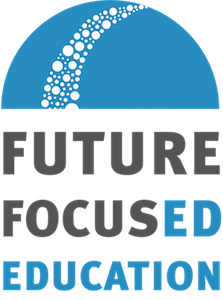Graduating as an Undocumented Scholar: DACA’s Role in Building Collective Power
By Rafael A. Martinez | June 21, 2018
“It took you eight years to graduate with your Bachelor’s degree?!”
The graduate advisor, who is looking through my graduate school application materials, asks me after she turns to my transcript. I look down and nod.
What she did not know when asking that question was that I was undocumented and that the majority of my undergraduate career I kept asking myself the same question – “why graduate?” This is a daunting question for undocumented youth.
Education represented a form of sanctuary for me from the realities of my undocumented life. With the Deferred Action for Childhood Arrivals program (DACA), former President Barack Obama and the U.S. government deferred the responsibility of passing comprehensive immigration reform; for me, education has represented a deferral of the reality that most of our undocumented communities face.
The walls of the institution feel impenetrable to the tentacles of the U.S. deportation regime.
Living undocumented often feels like a battle between being in/out of the shadows, but DACA allowed undocumented youth the privilege of coming out of the shadows educationally. Since the implementation of DACA, there has been a 15% increase in high school graduation rates. Even after the two-year-mark of DACA, we saw a 20% of its demographics enrolled in postsecondary education. It has also been well documented that undocumented youth earn better wages in comparison to their un-DACAmented counterparts.
A wider educational attainment for undocumented youth has built educational, political, economic, and cultural capital. Now, when the word “DREAMers” comes up, the general public has a good idea of what demographic is being discussed. This visibility has propelled undocumented youth to the public eye. The privilege of this capital gain represents a community responsibility to each undocumented youth who holds said privileges. What does that community responsibility look like?
Undocumented youth under DACA have been busy. Undocumented youth are entrepreneurs and open new businesses at distinctive levels. Many have become lawyers representing diverse immigrants and citizens alike. Others have taken political office in their municipalities to create local change, while others are hired by national political parties to change federal policies. There are doctors among our ranks who treat those in need. There are organizers who continue the fight of many years amongst the undocumented youth movement, working with the most marginalized immigrant communities.
Data shows there is a high impact between immigrant populations with and without DACA. The blocking of DAPA, removal of TPS, attacks on queer-trans-migrant communities, and most recently the separation of immigrant children from their families further separates the “haves” and “have-nots.”
At times, the immigrant rights movement has been compared to the Civil Rights period of social unrest in the 1960s. This comparison is fair; the immigrant rights movement has been influenced by the Civil Rights period. Like the Civil Rights movement, activists and educators have asked the same question – how do we build collective power with the visibility and privilege gained?
Six years after the macroaggression I experienced from that advisor’s commentary; I am a year away from graduating with my Ph.D. As an UndocuScholar, I have chosen to contribute to my community through teaching, academic research, and developing community based participatory projects. Academia represents a community who documents knowledge. Therefore, an undocuscholar is one who documents the life of immigrants relegated to the shadows through an undocumented lens.
To revisit that daunting question – why graduate? Graduating was the gift I made to my parents for their sacrifice in coming to this country. Graduation was the exchange to my community for their investment in me. Graduating as undocumented students represents the commitment we ought to make to build community. But let’s not just graduate – Let’s build COLLECTIVE POWER!
Rafael A. Martínez is a PhD candidate in American Studies at the University of New Mexico. Rafael’s research conducts a deep social, historical and political analysis of immigrant rights and undocumented youth. As an UndocuScholar Activist, Rafael is engaged in projects that seek to connect academic work with community development. Rafael is the founder of the Humans of New Mexico, a statewide media oral history project. Rafael is also the founder UndocuTalks, a podcast by immigrant youth for undocumented youth that covers education, news, and culture nationwide. Rafael teaches immigration and social movements courses in the American Studies and Chicana and Chicano Studies departments.
For More info visit his academic website: www.rafaelamartinez.com


